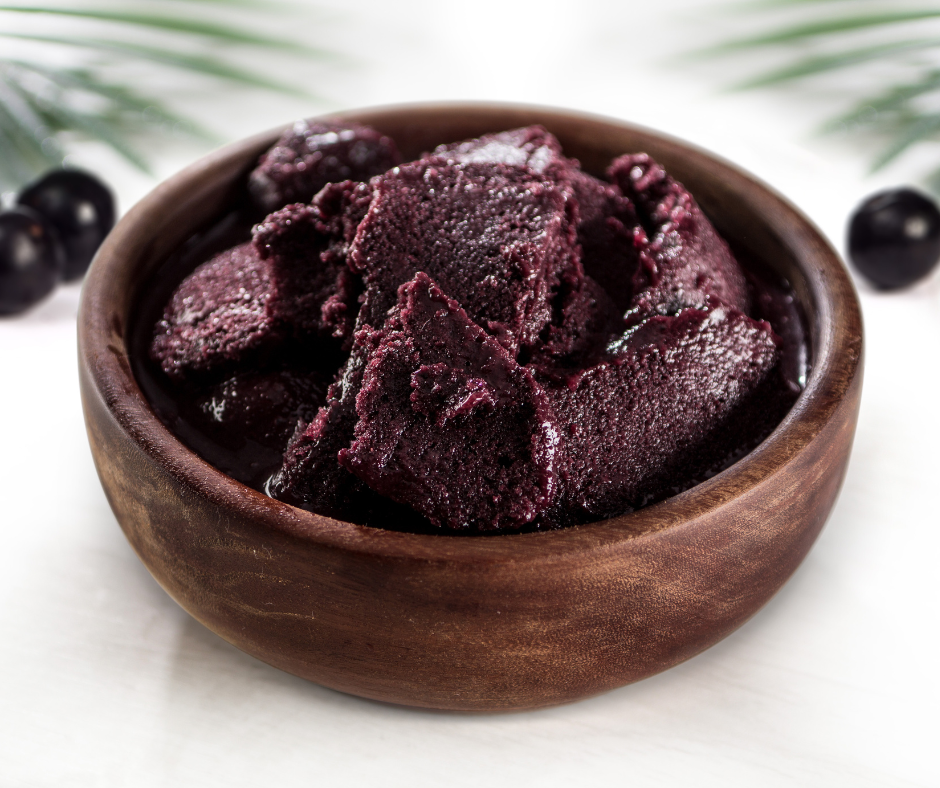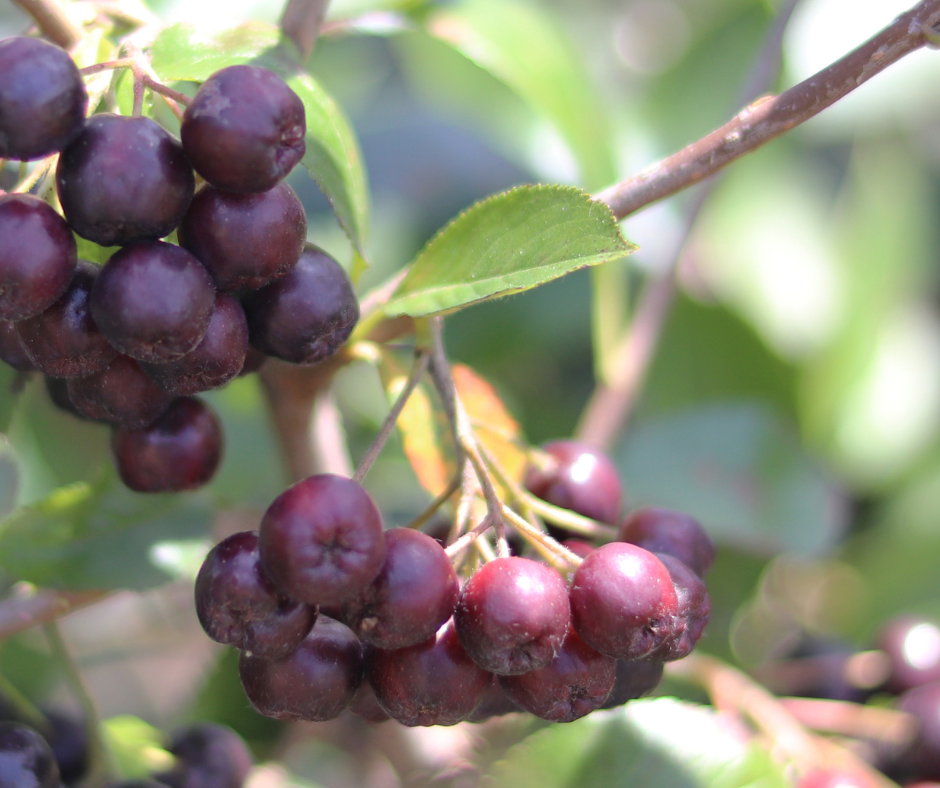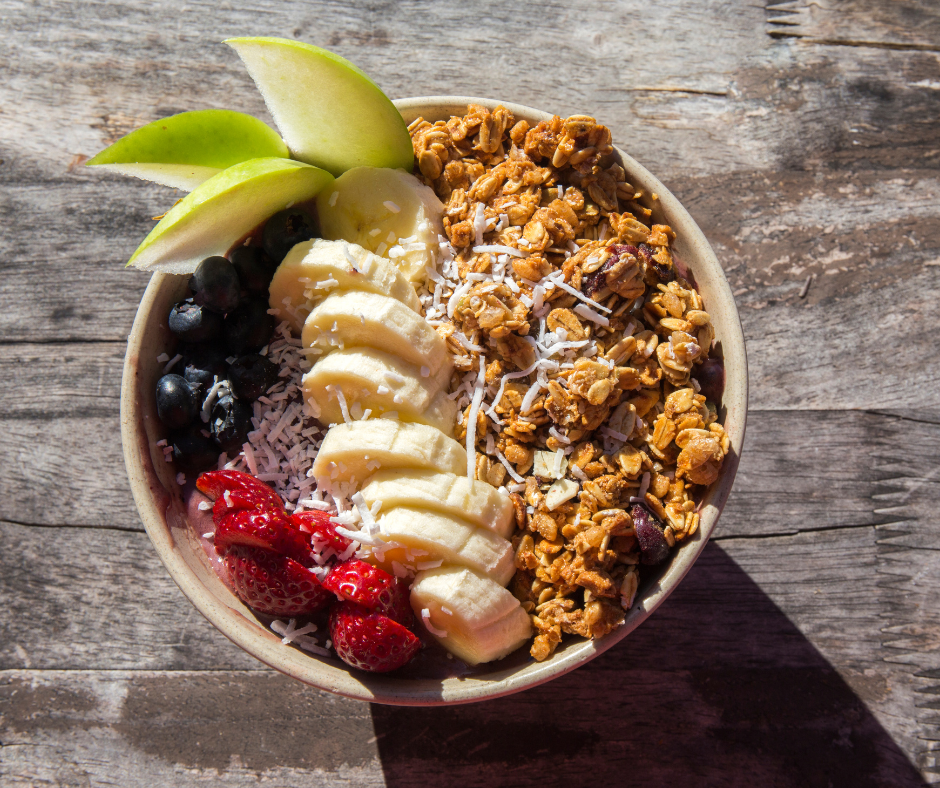Introduction
Acai berries have gained immense popularity recently for their numerous health benefits and energizing properties. People worldwide are incorporating these little berries into their diets to boost their energy levels and support their overall well-being. This blog will answer the question, ‘Does Acai Have Caffeine?‘ to provide the necessary information.
The Popularity Of Acai Berries And Its Energizing Properties
Acai berries have become a go-to superfood for those looking to increase their energy levels naturally. These small, dark purple berries contain essential nutrients, including antioxidants, fiber, and healthy fats. The antioxidants found in Acai berries help protect the body against oxidative stress and inflammation, leading to increased energy levels and reduced fatigue.
Many people also turn to Acai berries for their potential cognitive benefits. Studies have suggested that the antioxidants found in Acai berries may have neuroprotective effects, potentially reducing the risk of age-related brain disorders like Alzheimer’s disease and dementia. By incorporating Acai berries into their diets, individuals may experience improved mental clarity and focus, enhancing their overall energy levels.
Exploring The Question: Does Acai Have Caffeine?
One common question when discussing the energizing properties of Acai berries is ‘Does Acai Have Caffeine?’. The good news is that Acai berries themselves do not naturally contain caffeine. This makes them an excellent option for those who want an energy boost without the jitters or other side effects often associated with caffeine consumption.
However, it is essential to note that some Acai products on the market may contain added caffeine from sources like green coffee extract or other fruits that naturally contain caffeine. Therefore, checking the ingredients list when purchasing Acai products is crucial to ensure that they are caffeine-free if desired.
In conclusion, Acai berries are a fantastic choice for individuals looking to increase their energy levels naturally. They offer various health benefits, including antioxidant properties and cognitive support. While Acai berries do not contain caffeine, it is essential to be mindful of added caffeine in certain Acai products.
Understanding Acai Berries
Acai berries have gained quite a reputation as a superfood, known for their high antioxidant content and potential health benefits. But one question that often arises is whether acai berries contain caffeine. Let’s explore this energizing berry and find out the truth.
What Are Acai Berries?
Acai berries are small, dark-colored fruits from the acai palm tree, primarily found in South America, particularly in the Amazon rainforest. These berries have been consumed for centuries by the indigenous people of the region due to their nutritional value and unique flavor.
Nutritional Profile Of Acai Berries
Acai berries are packed with essential vitamins, minerals, and antioxidants. They are rich in vitamins A and C, potassium, iron, magnesium, and calcium. These vitamins and minerals play crucial roles in supporting overall health and well-being.
Regarding caffeine content, acai berries themselves do not contain caffeine. However, it’s important to note that some acai products may have added caffeine from other ingredients like guarani seeds or green coffee extract. So, if you want a caffeine-free option, check the label before purchasing any acai products.
In conclusion, while acai berries do not naturally contain caffeine, it’s essential to be aware of the potential added caffeine in certain acai products. Incorporating acai berries into your diet can provide numerous health benefits and improve overall well-being.
Does Acai Have Caffeine?
Acai berries have gained popularity for their numerous health benefits and rich taste. However, there is often confusion surrounding ‘Does Acai Have Caffeine?’. In this article, we will explore the facts about Acai and caffeine to answer ‘Does Acai Have Caffeine?’.
Debunking Common Myths About Acai And Caffeine
Contrary to popular belief, acai berries do not naturally contain caffeine. They are caffeine-free. Some acai bowl recipes or supplements on the market may contain added caffeine additives, but the berries are caffeine-free.
It is important to note that consuming acai berries does not provide the same energizing effect as caffeinated beverages like coffee or energy drinks. However, acai berries, such as theobromine, guarana, and PEA, contain compounds that may contribute to natural energy-boosting effects.
Explaining The Difference Between Natural Caffeine And Added Caffeine
When it comes to caffeine, it is essential to understand the difference between natural caffeine and added caffeine. Natural caffeine is derived from plant sources, such as coffee beans or tea leaves. Added caffeine, on the other hand, is synthetic and often found in processed foods and beverages.
While acai berries are naturally caffeine-free, some acai products may contain added caffeine from ingredients like guarana seeds. Consumers must read labels carefully to determine whether a product contains added caffeine.
In conclusion, acai berries themselves do not naturally contain any caffeine. However, some acai products may have added caffeine additives. Understanding the difference between natural and added caffeine can help consumers make informed choices when incorporating Acai into their diet.
Acai Products And Caffeine Content
You may have encountered the Brazilian superfruit called Acai if you love natural and energizing foods. Known for its rich taste and numerous health benefits, Acai has become a popular ingredient in smoothie bowls, supplements, energy drinks, and chocolate bars. But what about caffeine? Does Acai Have Caffeine? Let’s explore the answer!
Do Acai Bowls And Supplements Contain Caffeine?
The simple answer is no. Acai berries themselves do not naturally contain any caffeine. However, some Acai bowls or supplements may include added ingredients like green coffee extract or other fruits that naturally contain caffeine. So, if you want to limit or are sensitive to caffeine, check your Acai product’s ingredients list.
Caffeine Content In Acai Juice And Other Acai Products
When it comes to the caffeine content in Acai-related products, it can vary greatly. For example, a Strawberry Acai Refresher from Starbucks contains at least 45mg of caffeine in a 16-ounce drink. A Chocolate Cookie Crumble Crème Frappuccino has only 15mg of caffeine in a Grande size.
It’s important to pay attention to the label or ingredients list of the specific Acai product you’re consuming to determine its caffeine content. Acai tea is a great choice if you’re looking for a caffeine-free alternative. It provides the health benefits of Acai berries without any jitteriness or insomnia.
In conclusion, while pure Acai berries do not contain caffeine, some Acai products may have added caffeine ingredients. So whether you’re reaching for an Acai bowl or supplement, be mindful of the ingredients and choose what best fits your caffeine needs. Enjoy the energizing benefits of Acai while staying true to your caffeine preferences!
Health Benefits Of Acai
Acai berries, the small round fruits native to Central and South America, have gained popularity for their numerous health benefits. These antioxidant-rich berries contain essential nutrients, including vitamins, minerals, fiber, and healthy fats.
The Numerous Health Benefits Of Acai Berries
- Antioxidant Powerhouse: Acai berries are loaded with antioxidants, particularly anthocyanins, which help to protect the body against oxidative stress and inflammation. This can boost the immune system, support cardiovascular health, and promote healthy aging.
- Cholesterol Management: Studies have suggested that consuming Acai berries may help reduce total cholesterol and LDL (bad) cholesterol levels. This could potentially contribute to maintaining a healthy cardiovascular system.
- Possible Anti-Cancer Effect: While no food can prevent or cure cancer, research has shown that Acai berries have potential anti-cancer properties. Test-tube and animal studies have indicated that Acai extract may inhibit the growth of cancer cells.
- Brain Health: The plant compounds found in Acai berries have been shown to protect brain cells from inflammation and oxidative stress. This can help enhance memory and cognitive function and support the brain’s natural cleaning process known as autophagy.
How Acai Can Boost Energy And Improve Overall Well-being?
Despite popular belief, Acai berries themselves do not contain caffeine naturally. They are caffeine-free fruits. However, it is important to note that some Acai products may contain added caffeine ingredients or other caffeinated fruits.
Acai berries can still provide a natural energy boost due to their nutrient-dense composition. They contain fiber for sustained energy release and healthy fats that support brain function. Additionally, the antioxidants in Acai berries can help fight fatigue and improve overall well-being.
Incorporating Acai berries into your diet can be a delicious and nutritious way to enjoy their many health benefits. Whether as a frozen pulp, powder, or juice, Acai can be enjoyed in various forms and added to smoothies, bowls, or other recipes to provide a nutritious and energizing boost.
Potential Side Effects Of Acai
Acai berries have gained popularity as a superfood with numerous health benefits. However, it’s important to be aware of potential side effects and exercise caution when consuming them. Here are some possible side effects and precautions to consider.
Possible Allergies And Allergic Reactions To Acai Berries
While rare, allergic reactions to Acai berries can occur in some individuals, particularly those with known allergies to other berries or fruits such as strawberries or blueberries. If you fall into this category, it’s advisable to exercise caution when trying Acai berries for the first time. Watch for symptoms like itching, swelling, hives, difficulty breathing, or anaphylaxis. If you experience allergic reactions after consuming Acai berries, seek medical attention immediately.
Digestive Issues And Precautions To Take While Consuming Acai
Consuming excessive amounts of Acai berries or suddenly increasing their consumption may lead to gastrointestinal discomfort. Some individuals may experience abdominal pain, bloating, gas, or diarrhea. To avoid these issues, it’s important to introduce Acai berries gradually into your diet and listen to your body’s response. Consider reducing your intake or speaking with a healthcare professional for guidance if you notice any digestive issues.
Acai berries are generally considered safe for most people when consumed in moderate amounts as part of a balanced diet. However, it’s always important to be mindful of potential side effects and make informed decisions about their consumption. By taking these precautions, you can enjoy the numerous health benefits Acai berries offer without any adverse effects on your well-being.
Acai As A Caffeine-free Alternative
Acai has become a popular choice when it comes to finding natural energy-boosting foods. But for those sensitive to caffeine or looking to reduce their intake, the question arises: Does Acai Have Caffeine? The surprising answer is no. Acai berries do not contain caffeine, making them an excellent option for limiting caffeine intake.
Highlighting Acai As A Caffeine-free Energy Boost Option
Although Acai berries are caffeine-free, they have been linked to increased energy and reduced fatigue. Research has shown that the extract from these berries can be used for medicinal purposes such as treating skin and digestive issues. So, if you’re looking for a natural way to boost your energy levels without the jitters or crashes associated with caffeine, Acai berries are a great choice.
Comparing Acai To Other Natural Energy-boosting Foods
When it comes to natural energy-boosting foods, Acai holds its own. It is packed with antioxidants, amino acids, and other beneficial nutrients. Compared to other options like coffee or energy drinks that contain caffeine, Acai provides a subtle and sustainable energy boost without the negative side effects.
In conclusion, Acai berries are an excellent choice if you’re looking for an energizing option free from caffeine. Whether incorporating them into your smoothie bowls, supplements, or energy drinks, Acai can provide a natural and healthy alternative to traditional caffeinated options. So, give yourself a boost of vitality with this delicious and nutritious superfruit.
Incorporating Acai Into Your Diet
Acai berries are a fantastic option if you’re looking for an energizing boost to your daily routine. These small, dark-colored berries are known for their rich taste and numerous health benefits. But Does Acai Have Caffeine? Let’s explore.
Tips For Including Acai In Your Daily Routine
- Smoothies: Blend frozen Acai berries with your favorite fruits, yogurt, and a splash of almond milk for a refreshing and nutritious smoothie.
- Acai bowls: Top a thick Acai puree with granola, fresh fruits, and a drizzle of honey for a delicious and filling breakfast or snack.
- Acai supplements: If you’re looking for a convenient option, consider incorporating Acai supplements into your daily routine. These capsules or powders provide the health benefits of Acai in an easy-to-consume form.
Acai Recipes And Delicious Ways To Enjoy The Berry
- Acai Breakfast Bowl: Blend frozen Acai with banana, almond milk, and your choice of toppings like granola, berries, and coconut flakes.
- Acai Smoothie: Combine Acai, spinach, banana, almond milk, and a scoop of protein powder for a nutritious and satisfying post-workout drink.
- Acai Chia Pudding: Mix chia seeds with Acai puree, almond milk, and a sweetener. Let it sit overnight in the fridge for a creamy and healthy breakfast.
Incorporating Acai into your diet can provide you with a natural energy boost without the negative effects of caffeine. So go ahead and enjoy the delicious flavors and health benefits this amazing berry offers.
FAQ: Does Acai Have Caffeine? Exploring the Energizing Berry
Q: Does Acai juice give you energy?
A: Acai juice may provide some energy, but it’s important to note that the effect is likely to be relatively small and caffeine-free.
Q: Can Acai products contain caffeine?
A: While Acai berries themselves do not contain caffeine, some Acai products may have added caffeine from guarana seeds. It’s important to read the ingredients carefully.
Q: Is Acai linked to increased energy and reduced fatigue?
A: Although Acai berries are caffeine-free, they have been associated with increased energy and reduced fatigue. Research has found that the berry’s extract can be used medicinally for various purposes, including treating skin and digestive issues.
Q: How much caffeine does Acai fruit juice contain?
A: Pure Acai fruit juice does not contain caffeine. However, if the juice contains guarana seeds, it can have 25mg of natural caffeine per 100g.
Q: How much caffeine is in two cups of Acai berries?
A: Two cups of Acai berries do not contain caffeine naturally. However, if they are processed into juice with guarana seeds, it may contain around 50mg of caffeine.
Q: Is it safe for caffeine-sensitive individuals or those looking to cut down on caffeine?
A: Acai itself is caffeine-free, making it safe for caffeine-sensitive individuals. However, if you are concerned about your caffeine intake, it’s important to check the ingredients of Acai products to ensure they are caffeine-free.
Q: Why are Acai berries popular for their health benefits?
A: Acai berries have gained popularity due to their high levels of antioxidants, vitamins, minerals, and other beneficial nutrients. Adding Acai to your diet boosts nutrition and provides a delicious tropical flavor.
Conclusion
Now you should know the answer to ‘Does Acai Have Caffeine?’. After exploring the topic of caffeine in Acai berries, it is clear that this energizing berry does not naturally contain any caffeine. Acai berries are a caffeine-free superfood that can provide numerous health benefits and boost your energy levels without the jitters or side effects of caffeine.
Final Thoughts On The Caffeine Content Of Acai Berries
Acai berries are an excellent choice for those looking for a delicious and natural way to increase energy levels. They are packed with essential nutrients, antioxidants, and fiber, contributing to overall health and well-being. Whether you want to support your immune system, improve cardiovascular health, enhance brain function, or maintain a healthy digestive system, incorporating Acai berries into your diet can be highly beneficial.
Acai berries are versatile and can be enjoyed in various forms, such as smoothie bowls, juices, or supplements. However, it is important to note that some acai products on the market may have added caffeine ingredients or include fruits that naturally contain caffeine. For individuals who are sensitive to caffeine or prefer to avoid it, it is crucial to read the ingredients list and make informed choices.
In conclusion, Acai berries offer a natural and wholesome way to boost energy levels without relying on caffeine. They are a nutritious and delicious addition to a balanced diet and can contribute to overall health and well-being. So enjoy the energizing benefits of Acai berries while reaping their numerous health advantages.

Deb Carlson at Crosslake Coffee: Join Deb at Crosslake Coffee for a delightful blend of community, caffeine, and creativity. Discover the cozy ambiance and warm hospitality that make this local coffee shop a beloved gathering spot. From expertly crafted espresso drinks to mouthwatering pastries, Deb invites you to savor every sip and bite. Stay connected with the latest updates on specials, events, and live music performances by following Deb Carlson at Crosslake Coffee on social media. Embrace the vibrant online community and share your love for great coffee and good company with fellow enthusiasts. Don’t miss out on a moment of the Crosslake Coffee experience – connect with Deb on social media today.



